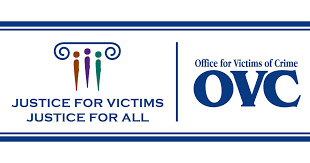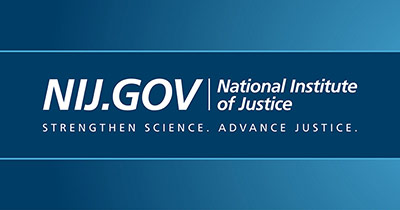Contact Us
To provide feedback on the Community Policing Dispatch, e-mail the editorial board at CPDispatch@usdoj.gov.
To obtain details on COPS Office programs, publications, and resources, contact the COPS Office Response Center at 800-421-6770 or AskCopsRC@usdoj.gov

U.S. Department of Justice
Office of Community Oriented Policing Services
Washington, DC 20530
The COPS Office is happy to announce that some of our fellow Department of Justice components are also providing funding to support officer safety and wellness.
 Through the FY19 Vicarious Trauma Response Initiative: National Scope Training and Technical Assistance solicitation, the Office for Victims of Crime (OVC) seeks to mitigate the impact of vicarious trauma, improve public safety, support local communities, strengthen responses to crime victims, and support victim service providers. Many first responders and victim service providers are affected by vicarious trauma, defined as the exposure to the traumatic experiences of other people, because of their repeated exposure to crime victimization. The purposes of this solicitation are to build upon existing evidence-based resources and expertise at the national, regional, tribal, state, and local levels; to weave these resources together with in-depth and tailored technical assistance, based on the unique needs and resources in a particular community; and to provide free and accessible support and technical assistance that results in a robust established and sustained response to vicarious trauma in at least 10 to 15 community implementation sites, including American Indian/Alaska Native communities.
Through the FY19 Vicarious Trauma Response Initiative: National Scope Training and Technical Assistance solicitation, the Office for Victims of Crime (OVC) seeks to mitigate the impact of vicarious trauma, improve public safety, support local communities, strengthen responses to crime victims, and support victim service providers. Many first responders and victim service providers are affected by vicarious trauma, defined as the exposure to the traumatic experiences of other people, because of their repeated exposure to crime victimization. The purposes of this solicitation are to build upon existing evidence-based resources and expertise at the national, regional, tribal, state, and local levels; to weave these resources together with in-depth and tailored technical assistance, based on the unique needs and resources in a particular community; and to provide free and accessible support and technical assistance that results in a robust established and sustained response to vicarious trauma in at least 10 to 15 community implementation sites, including American Indian/Alaska Native communities.
Apply by June 4, 2019.
 Through its FY19 solicitation for Research and Evaluation in Safety, Health, and Wellness in the Criminal Justice System, the National Institute of Justice (NIJ) is seeking applications for research in four areas: (1) the cumulative effects of shift-work schedules, overtime, and secondary employment on the health, safety, performance, and quality of life of police or correctional officers; (2) enhancing strategies for officer interaction with individuals presenting with mental illness; (3) understanding the impact and management of stress, burnout, and vicarious trauma to advance resiliency of the forensic science workforce; and (4) understanding the impact of undercover work on officer wellness.
Through its FY19 solicitation for Research and Evaluation in Safety, Health, and Wellness in the Criminal Justice System, the National Institute of Justice (NIJ) is seeking applications for research in four areas: (1) the cumulative effects of shift-work schedules, overtime, and secondary employment on the health, safety, performance, and quality of life of police or correctional officers; (2) enhancing strategies for officer interaction with individuals presenting with mental illness; (3) understanding the impact and management of stress, burnout, and vicarious trauma to advance resiliency of the forensic science workforce; and (4) understanding the impact of undercover work on officer wellness.
Apply by May 28, 2019.
Subscribe to Email Updates
To sign up for monthly updates or to access your subscriber preferences, please enter your email address in the Subscribe box.






